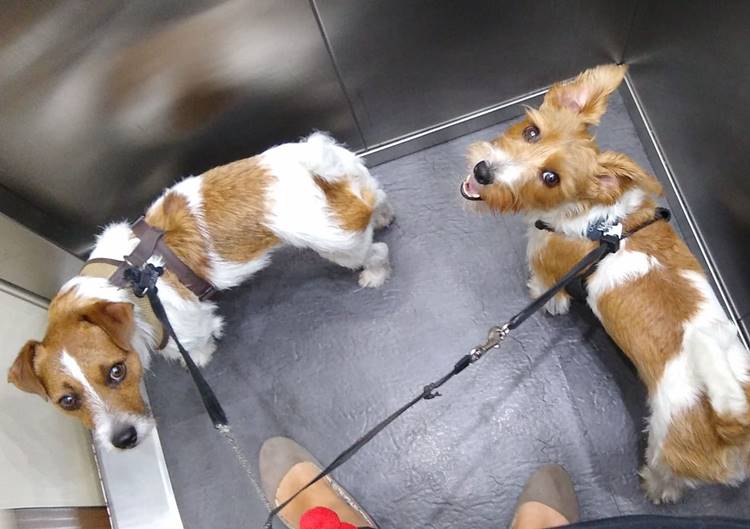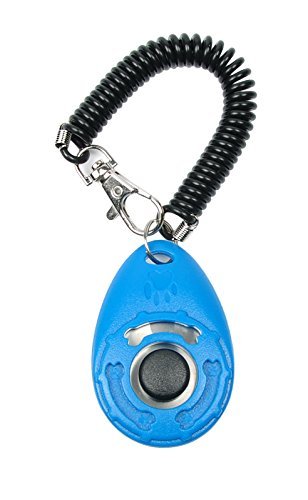How to Train Your Dog to Come When Called
by dogtoyadvisor | Last updated on November 18, 2020
We only review products we tested ourselves. We have affiliate partnerships, so we get a share of the revenue from your purchase.

Are you struggling with teaching your dog to come when you call him? Have you tried all sorts of ways to teach him to come, but nothing seems to work?
It is a basic command every dog should learn but it can sometimes seem daunting to teach. Other dogs learn it easily enough, so why not yours?
Don’t dispair! This is the post for you!
Why is So Difficult For A Dog to Focus
Dog are curious beings, easily distracted, there’s just so much in the World to see and smell!
When it’s time to go outside, they’ll smell and investigate everything like it’s the first time.
Being very sociable, dogs will also get excited and distracted with other dogs.
It may seem impossible to train unfocused dogs to come when called, but we know for a fact it is not only possible, but even simple to achieve.
Dogs learn differently than humans and, if you understand how their mind works, you can solve MOST dog behavior issues.
Our Dogs Would Just Ignore Us
Dobby couldn’t be unleashed, even in closed spaces, because he would be afraid of everything.
Coco got easily distracted and would chase everything that moved.
Tommy has always been pretty ball-focused.
But if we made the mistake of having him off-leash without a ball, he would chase whatever ball he could find and just forget about us.

All of our three dogs were challenging.
One was too scared, the other too curious and the third hasn’t met a ball he won’t claim for himself.
We taught our dogs to come when called by following just one training technique we picked up from an online dog training course that changed our lives.
Not only did it make our lives easier it also meant our dogs are safer and more protected.
How We Trained Our Dogs To Come “Every Time”
No tip from friends or YouTube videos worked, if anything it only made it worse.
We needed help fast!
Until one day, a dear friend told us about Adrienne Farricelli and how successful working with her to solve her puppy’s issues had been.
Then we found out she has an online dog training course available!
AND we decided to give it a try!
We quickly realized her training could be applied to pretty much any behavior issue, like barking, jumping, potty training, etc.
Best yet, all our dogs responded brilliantly to it, regardless of size, age or personality.
How to Teach a Dog to Come
Teaching a dog to come when called is not just a matter of convenience. It can save his life.
Imagine you’re out on the street and your dog is either off leash or sees another dog and gives the lead a tug and you can’t hold onto him and he’s about to run across a busy street?
Or maybe he’s safely inside a dog park and meets an aggressive dog who’s about to attack.
For these reasons and many more, you need your dog to come when called.
By doing it the way we learned with Adrienne’s training course, you can train a dog to come to you in every situation.
Just keep reading and decide for yourself!
Step 1 – Get His Attention
First of all, fully expect your dog not to do what you want at first.
Start indoors where there are less distractions.
But you can do it outside too, just make sure to pick a quieter area of the dog park, or do it in your own garden if you have one.
Then it’s time to pick a reward you’ll be using to train him with.
For Dobby, it’s treats, period. Nothing else will work as much. Tommy loves food but is obsessed with balls. Coco likes cuddles.
Whatever works, use it.
Also, you’ll need to choose the command you want to use to recall him. And make sure you don’t say “come” for anything he doesn’t want to do.
Because he needs to create a positive association with that word.
You can always use a clicker.
A clicker is a very precise training tool. Your dog is used to hearing your voice on different occasions, but using a clicker means action and reward and nothing else.
For deaf dogs, you can maybe use a gesture, a flashlight to signal or an Ultrasonic Dog Whistle.
The way to train him is the same, regardless of the trigger you use.
Step 2 – Get Him to Want to Come to You
And now we start.
With our pockets filled with tasty treats take him to the training area you’ve selected.
If you’re planning to train him outside, we recommend that you use a long leash to make sure he doesn’t wander off.
Leave him be for a while and when he’s at a short distance, look at him and wait for him to look at you. If you have harebrained, distracted dogs like ours, you’ll probably need to call him first.
Once he does and starts off in your direction, use the command “come” or the clicker.
Never say “come” when your dog is distracted, otherwise he’ll never associate that command to the action you want from him.
And wait for him to reach you before rewarding him.
It’s important not to show him his reward before he’s reached you.
Why?
Because you want him to come for the command, not because he’s seeing/smelling something he wants.
This way, he will associate the command or action to coming to you, which is exactly what you want. The reward afterwards will keep him focused on you and motivated to repeat the action.
That was one basic principle we picked up from the online dog training course that changed our lives.
Step 3 – Repeat, Then Add Distractions
Like all training, consistency is key!
You’ll want to repeat this often and do the exact steps every time you do it.
Then it’s time to add distractions. Take him to where you usually take him, surrounded by all the usual distractions.
You’ll notice immediately if he’s still keeping his focus on you. If he does, resume training the exact same way and do it as often and as steadily as possible.
Ultimately, he should be able to come without the rewards, the clicker or the whistle.
If he’s forgotten all about you and is all over the place, you’ll probably need to go back and choose somewhere quieter first before giving it another try.
How Can You Teach Your Dog ANYTHING!
In order to train your dog, you need to understand how his mind works, otherwise you’ll fail.
Once you get the way he learns, you’ll be able to teach him just about anything.
Trainers charge a lot of money to tell you what to do, but don’t do the work for you. This means that you’ll spend $50/hour, having the results depend solely on you.
We wanted to be able to learn how to train our dogs to do what we wanted (and what we didn’t want them to do) without breaking the bank.
It seemed like an impossible mission at first, but a friend that had gone through the same problem had the answer all along.
The Solution Is Simple: Get An Online Trainer
We did it and we highly recommend it!
It helps tremendously that Adrienne is a CPDT-KA certified dog trainer with over a decade of experience.
It has allowed her to study dogs, really understand them and get to the bottom of their issues and behavior before creating the course.
It was like this online dog training course had been designed specifically with our dogs in mind.
We were afraid we wouldn’t be able to follow this course, but it’s actually divided into Beginner, Intermediate and Advanced levels.
This allowed us to start at the very beginning (a very good place to start!) and work our way up from there.
Affiliate links / Images from Amazon Product Advertising and iStock
Recommending Reading:










